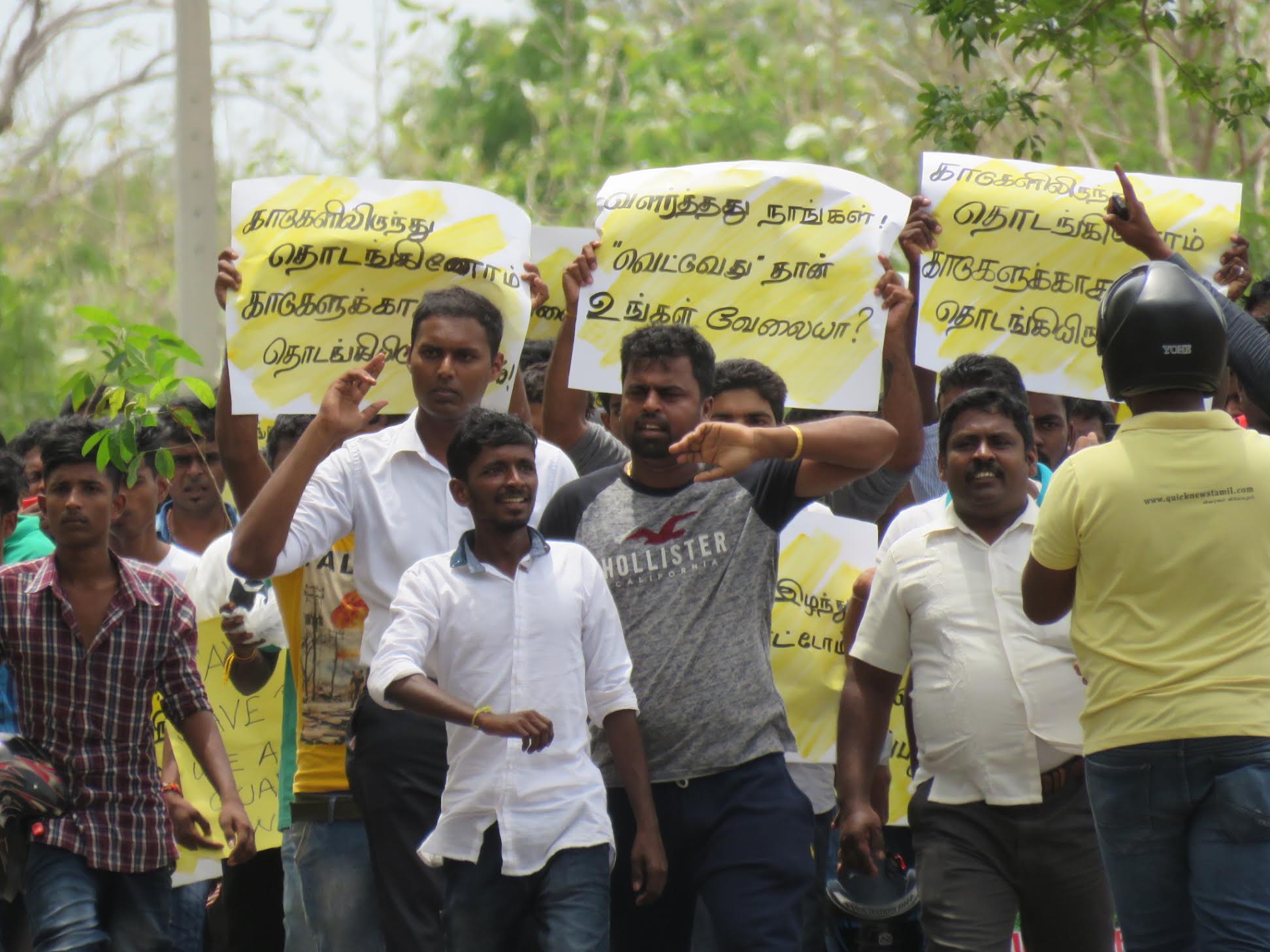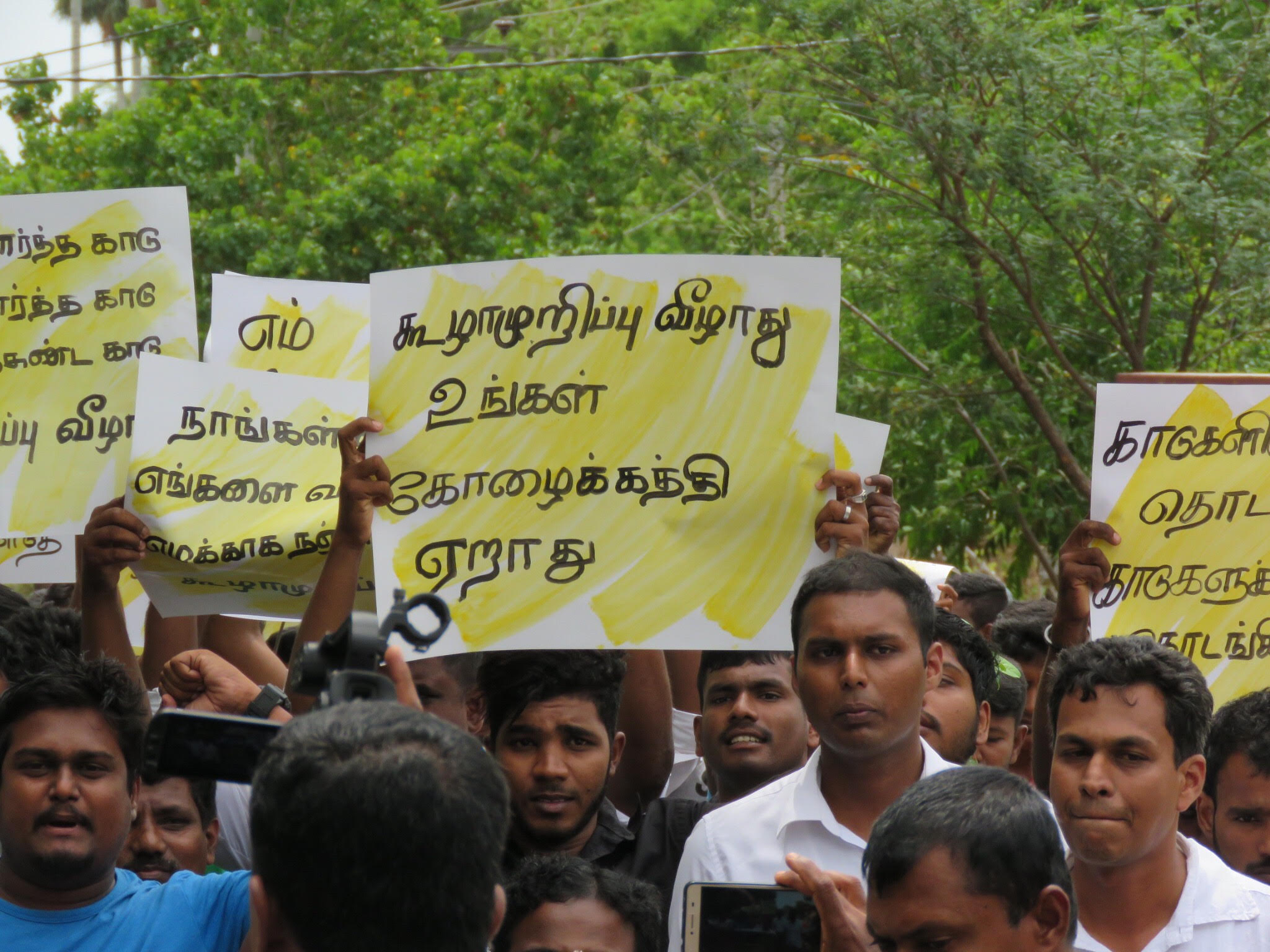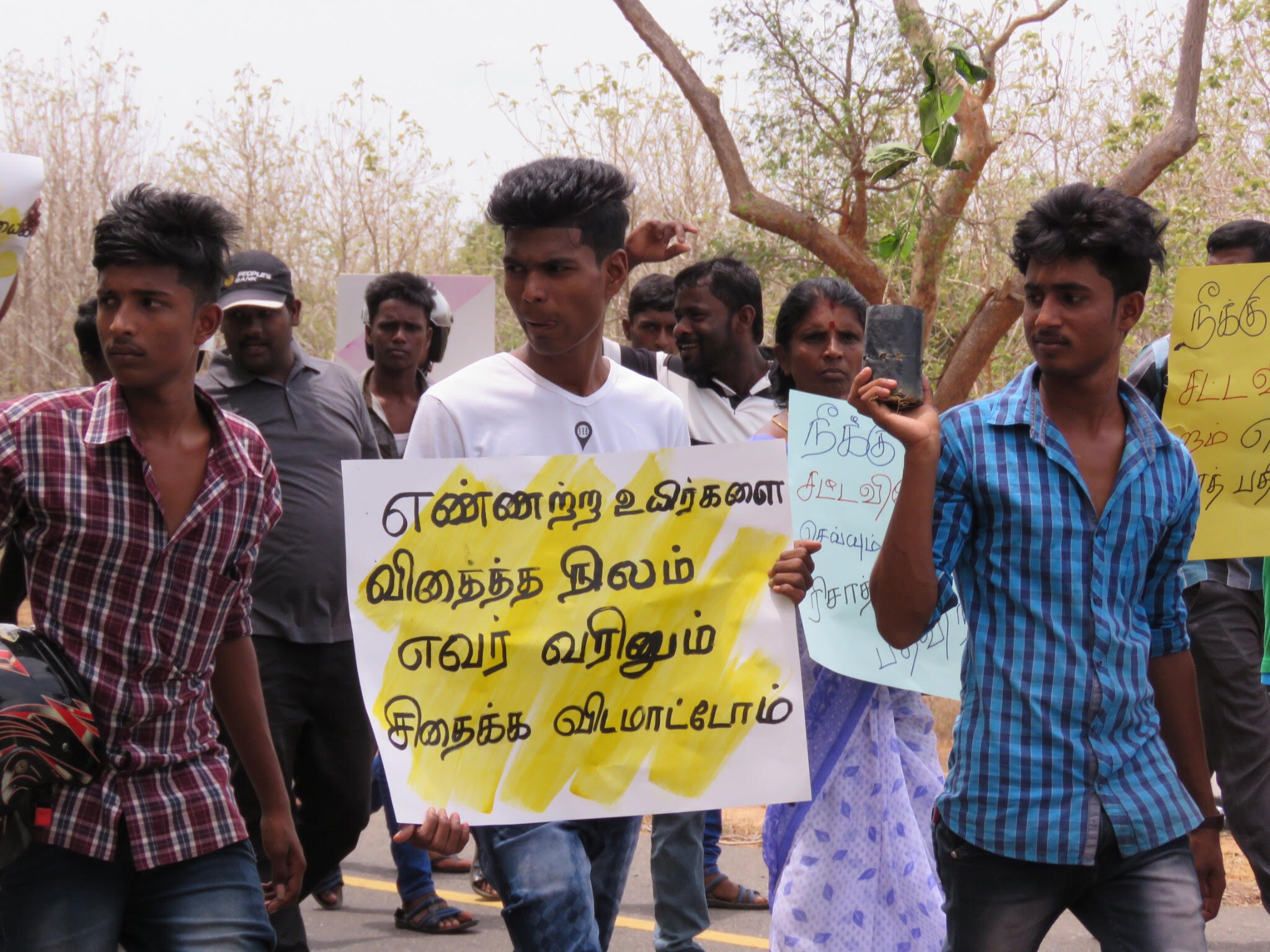Photographs: Tamil Guardian
Hundreds of Tamils protested in Mullaitivu against Sri Lankan state-organised resettlement schemes for Muslims that that locals say are intended to alter the ethno-demography of the area and destroy hundreds of acres of forest planted and preserved by the LTTE.
|
"We grew these! But your job is to cut them?" |
Protesters travelled from all districts of the Tamil homeland, marching seven kilometres along the Vaarivannaan, Koozhamarippu forest.
Tamil parliamentarian Shanthi Sriskantharajah attended the protest as well as Northern Provincial Councillors T Raviharan, A Puvaneswaran and B Kajatheepan.
|
"Koozhamarippu won't fall, your cowardly blades won't rise" |
Around 177 acres is to be destroyed for the resettlement of Muslim families.
Concern has been raised by civil society groups about anti-Muslim rhetoric surrounding the organisation of the protest, and the inflammatory nature of discussions about the issue on social media.
|
"Countless lives sown on this land, we won't let anyone ravage it" |
A social media post in which a Mullaitivu local government employee claimed “Mullaitivu will soon become Muslim-Tivu (island), we will make it such” had also sparked outrage among Tamil residents of the district.
However protestors maintained that their opposition was to the state-endorsed destruction of the forest and re-engineering of Vanni demographics, and in particular the activities of the minister, Rishad Bathiudeen.
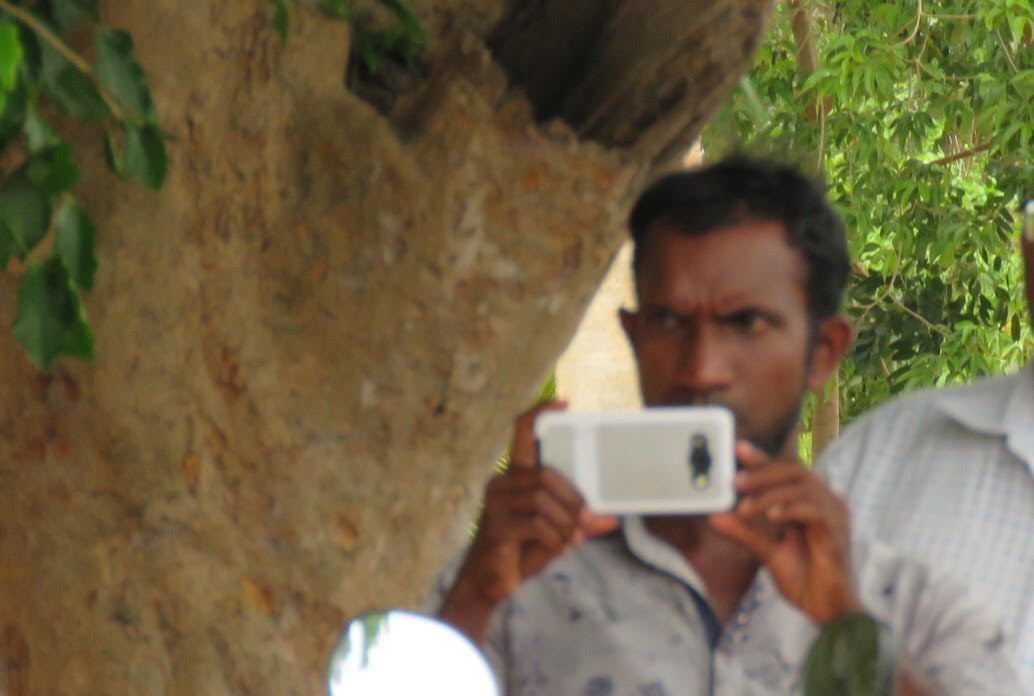 |
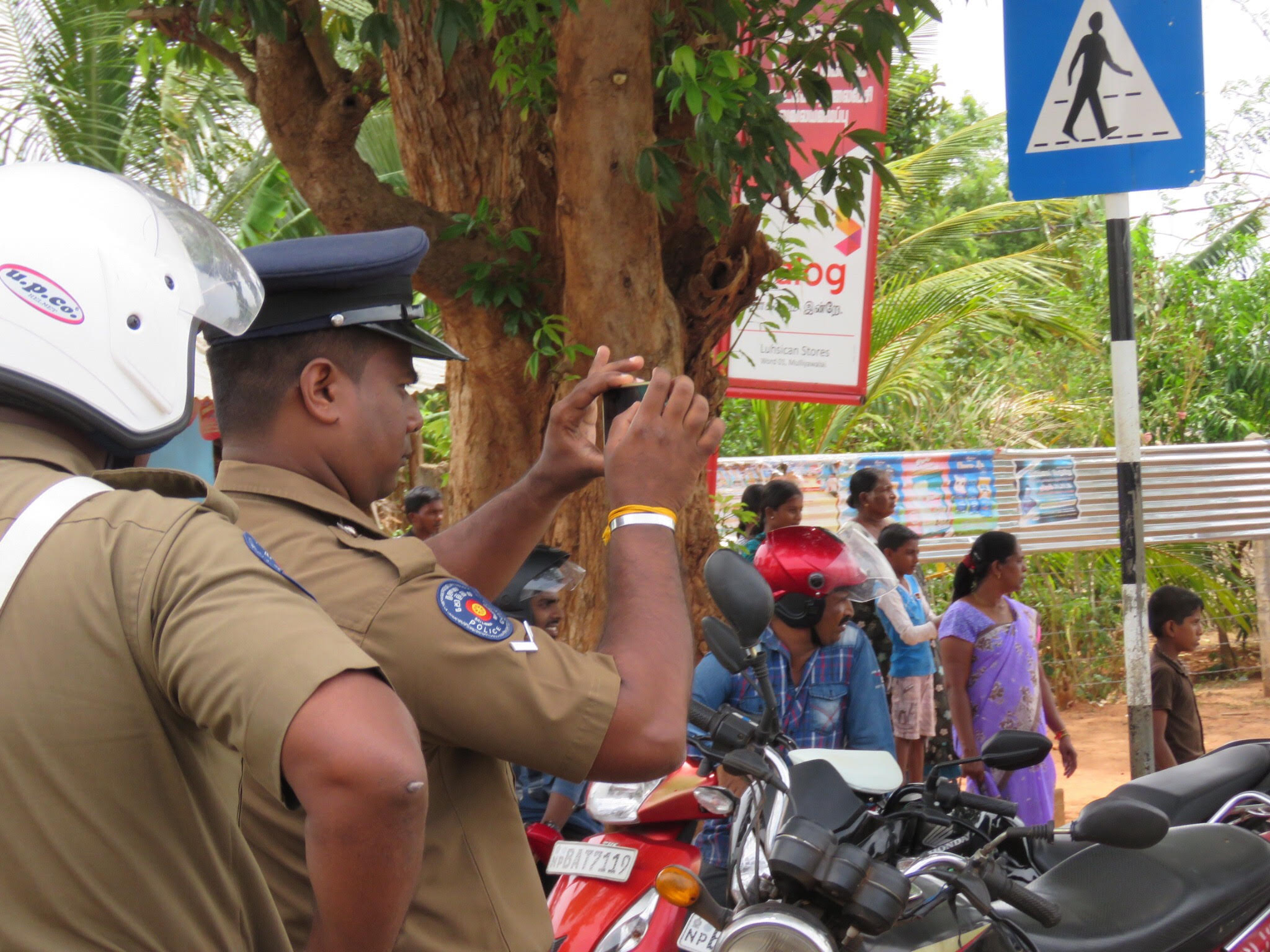 |
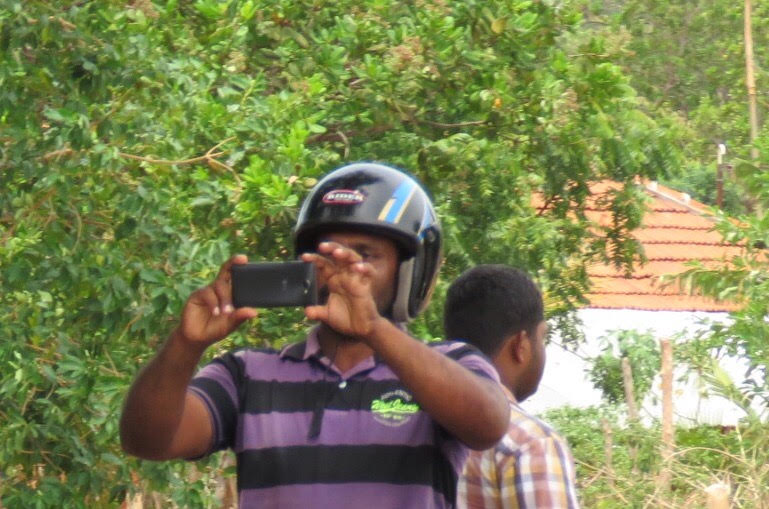 |
|
Police and intelligence personnel take photographs of protestors |
||
“We are not against Muslims, nor are we against Muslim resettlements,” the protest organisers said. “However we cannot accept settlements that destroy our forests and distort the ethno-demography of our homeland.”
Some protesters claimed that the selection of LTTE-grown forests, which hold deep sentimental value to Eelam Tamils, was itself incitive and the schemes designed to provoke tension between communities.
“It is not just the roots that have pierced this land,” one protester said, “it is the dreams of the Maaveerar.”
“They are trying to break the connection between us, the Tamils, and our homeland.”
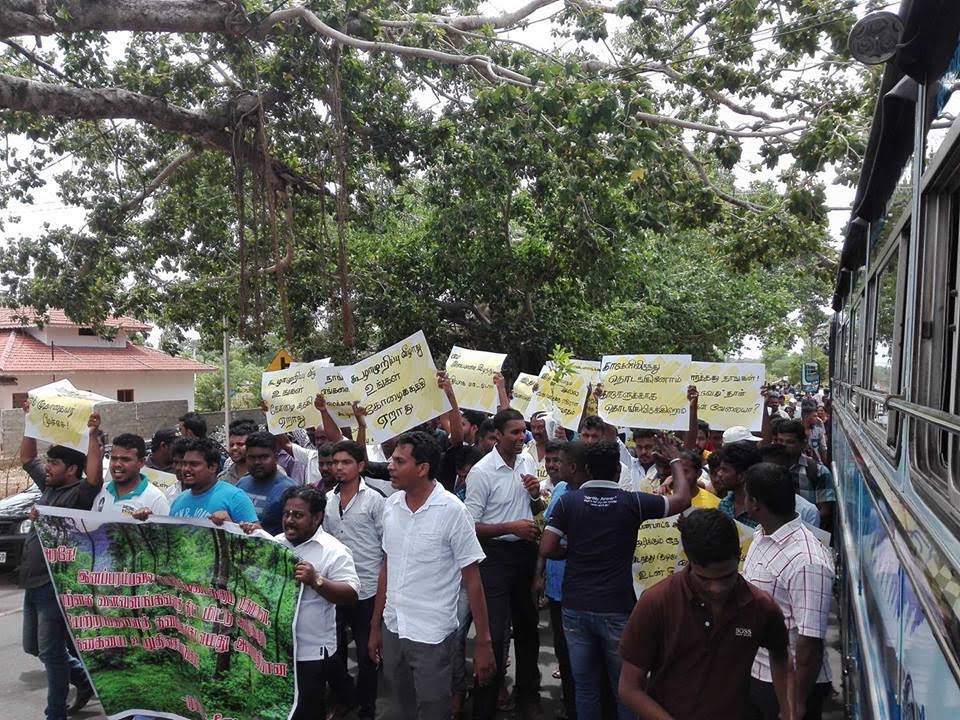 |
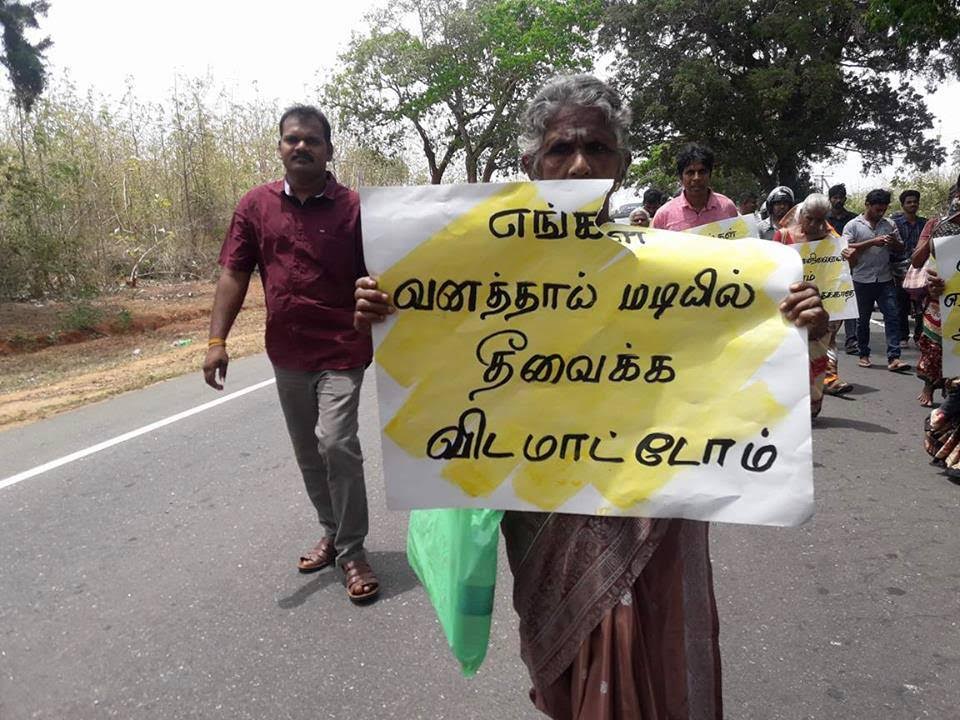 |
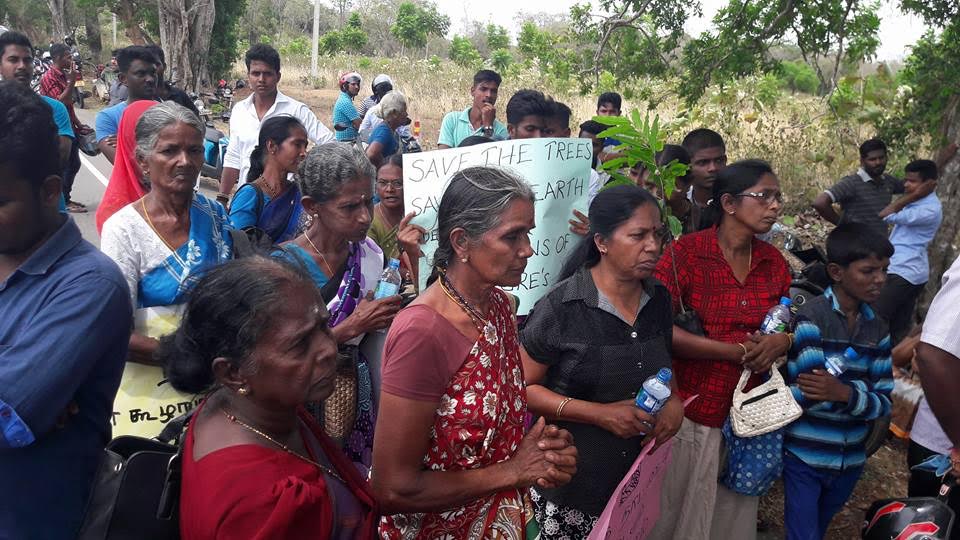 |
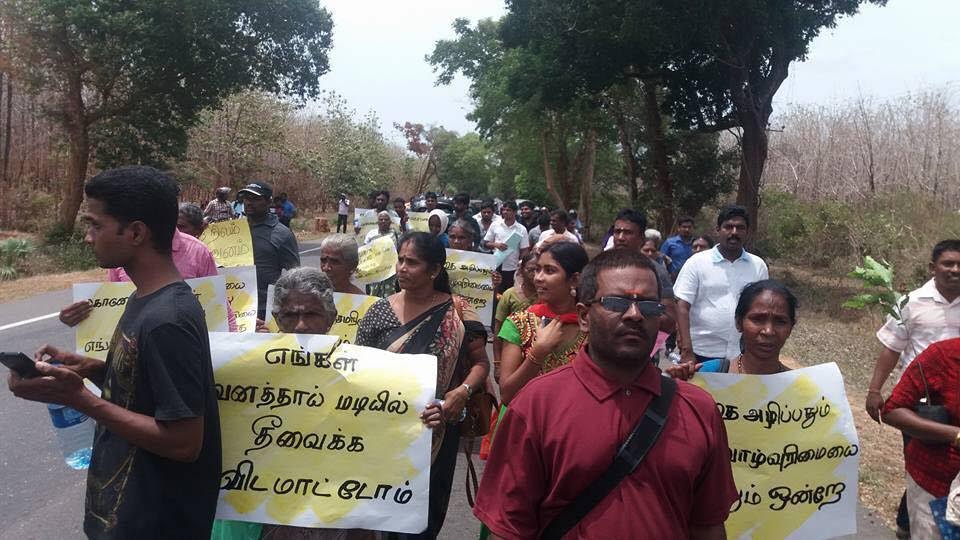 |
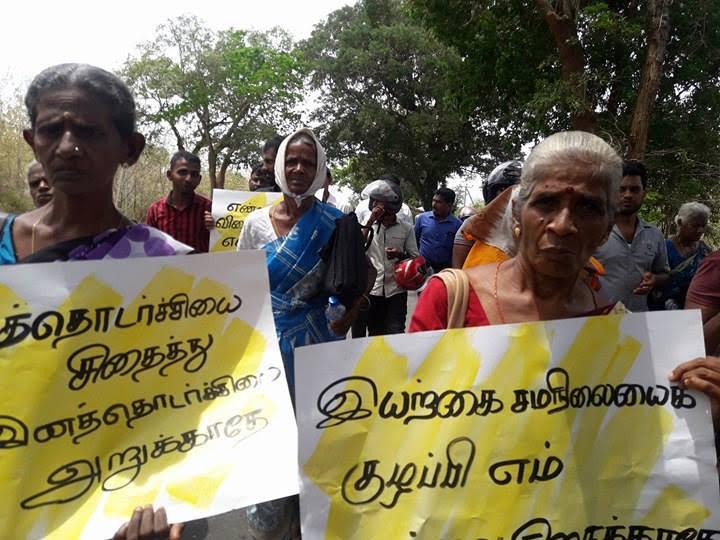 |
|

